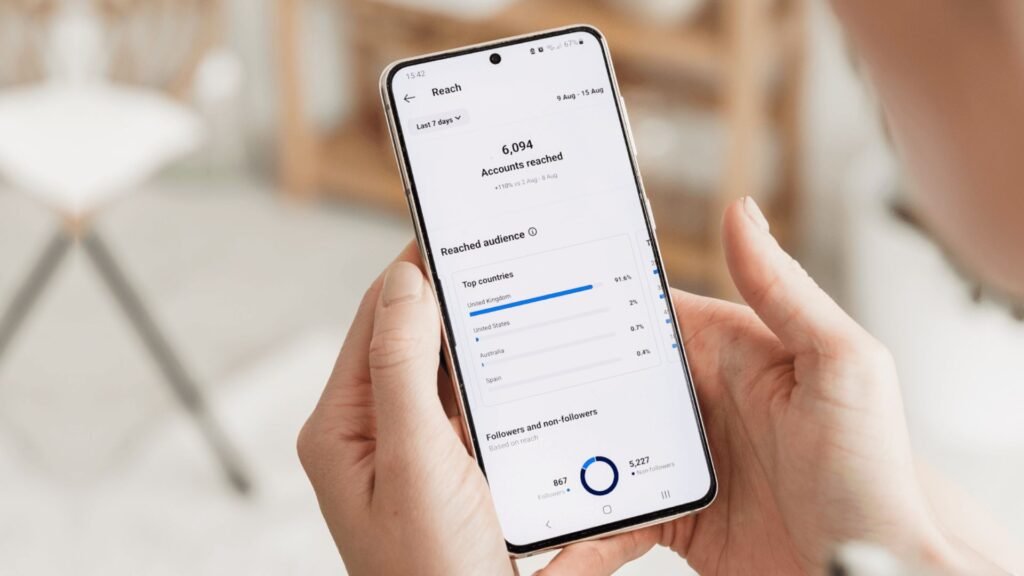In today’s digital age, social media is a powerful tool for businesses and individuals alike. However, to ensure your social media efforts are paying off, it’s essential to measure your success effectively. Understanding which metrics to track can provide insights into your performance and help you make informed decisions for future strategies. Here’s a comprehensive guide on how to measure success on social media by focusing on key metrics.

Engagement Rate
Understanding Engagement
The engagement rate measures how effectively your audience interacts with your content. This includes likes, comments, shares, and saves, reflecting how well your posts resonate with your followers. A high engagement rate indicates that your audience finds your content valuable and engaging.
How to Calculate
To calculate the engagement rate, use the following formula:
Engagement Rate=Total EngagementsTotal Followers×100\text{Engagement Rate} = \frac{\text{Total Engagements}}{\text{Total Followers}} \times 100
Reach and Impressions
Reach vs. Impressions
- Reach refers to the total number of unique users who have seen your post.
- Impressions count how many times your content has been displayed, regardless of whether it was clicked or not.
Tracking these metrics helps you understand how far your content spreads and how many people are aware of your brand.
Importance
A broad reach with high impressions indicates effective content distribution, showing that your posts are getting seen by a large audience.
Follower Growth Rate
Tracking Growth
Monitoring your follower growth rate helps you understand how well your brand is attracting new users. A steady increase in followers suggests that your content is appealing and that your brand is gaining traction.
Calculation
To calculate the follower growth rate:
Follower Growth Rate=New FollowersTotal Followers at Start×100\text{Follower Growth Rate} = \frac{\text{New Followers}}{\text{Total Followers at Start}} \times 100
Click-Through Rate (CTR)
What is CTR?
Click-through rate measures how often people click on the links you share in your posts. This metric is vital for assessing the effectiveness of your calls to action and how well your content drives traffic to your website or landing pages.
Calculation
The formula for calculating CTR is:
CTR=Total ClicksTotal Impressions×100\text{CTR} = \frac{\text{Total Clicks}}{\text{Total Impressions}} \times 100
Conversion Rate
Defining Conversions
A conversion is when a user takes a desired action after engaging with your content, such as signing up for a newsletter, making a purchase, or filling out a contact form. Tracking conversion rates helps you evaluate the success of your social media campaigns in achieving specific goals.
Calculation
To calculate the conversion rate:
Conversion Rate=ConversionsTotal Visitors×100\text{Conversion Rate} = \frac{\text{Conversions}}{\text{Total Visitors}} \times 100
Return on Investment (ROI)
Measuring ROI
ROI helps you determine the financial effectiveness of your social media efforts. By comparing the revenue generated from your social media campaigns to the costs incurred, you can assess whether your strategies are yielding positive results.
Calculation
To calculate ROI:
ROI=Net ProfitTotal Investment×100\text{ROI} = \frac{\text{Net Profit}}{\text{Total Investment}} \times 100
Audience Demographics
Understanding Your Audience
Tracking audience demographics provides insights into who your followers are, including age, gender, location, and interests. This information is crucial for tailoring your content to better meet the needs and preferences of your audience.
Importance
Understanding your audience demographics helps you create more targeted and relevant content, enhancing engagement and improving your overall social media strategy.
Conclusion
Measuring success on social media requires a multifaceted approach that includes tracking various metrics. By focusing on engagement rates, reach, follower growth, CTR, conversion rates, ROI, and audience demographics, you can gain valuable insights into your performance. Regularly analyzing these metrics will enable you to refine your social media strategies, enhance your content, and ultimately achieve your goals more effectively.










